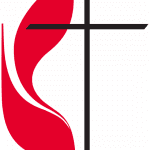THE QUESTION:
Can students pray in U.S. public schools?
THE RELIGION GUY’S ANSWER:
The Trump Administration’s education and justice departments, after work with government attorneys, issued policy guidance to public schools January 16 on this emotional-laden and oft-misunderstood issue. The answer is well settled in American law and agreed upon by a very wide range of religious and public education organizations.
Yes, depending.
Yes, if a student initiates prayer and does not disrupt classes. Students also enjoy other religious rights on an equal basis with non-religious activities, as surveyed below. But the answer is no if public school systems, administrators or teachers authorize prayers in an official capacity. Federal court edicts say that violates the Constitution’s ban on government “establishment of religion.” (Private schools, of course, can do whatever they want about religion.)
The Trump announcement https://www2.ed.gov/policy/gen/guid/religionandschools/prayer_guidance.html (nicely timed to boost religious enthusiasm in the 2020 campaign) merely repeats the well-settled consensus. However, the federal government might now enforce more strictly local schools’ required written certification that they keep hands off students’ voluntary religious activities, and it might investigate complaints of violations more vigorously.
Our story starts with Engel v. Vitale, the U.S. Supreme Court’s 1962 ruling that saw an obvious “establishment” violation in public school recitations of a bland interfaith prayer of 22 words that was authorized by the New York State Regents. On similar grounds, the Court’s more pivotal Abington Township v. Schempp decision the following year outlawed schoolroom ceremonies with religious content, in this case schoolroom readings (without comment) from the Bible and recitations of the Lord’s Prayer.
Since religion as part of the public school curriculum is causing political debates, it’s important that in Abington the high court went out of its way to encourage this: “It might well be said that one’s education is not complete without a study of comparative religion or the history of religion and its relationship to the advancement of civilization. It certainly may be said that the Bible is worthy of study for its literary and historic qualities.”
Such material must be “presented objectively as part of a secular program of education,” the court specified. Some schools, particularly in the Southeast, have provided classes with a sectarian spin. But “The Bible and Its Influence” (2nd edition, 2011) is an important example of a carefully neutral textbook in use with wide interfaith acceptance. Though sectarian classes are barred on campus, it’s legal for public schools to allow “released time” for students to attend religious instruction off-site.
Since Abington, the U.S. Supreme Court has gone on to forbid, for example, officially planned prayers at graduations (Lee v. Weisman, 1992) and football games (Santa Fe v. Doe, 2000), and even a classroom “moment of silence” that allowed for students’ private “meditation or voluntary prayer” (Wallace v. Jaffree, 1985).
As the Trump memo reminds educators, many court rulings, statutes, and policy memos mandate government “neutrality.” That means students may pray and study their scriptures individually and in organized groups before and after the school day, and during lunch or recess. The same for teachers during private times on campus.
Students have free-speech rights to persuade others on religious topics or hand out literature just as with political causes. Religious clubs have the same rights as other non-curricular groups to meet at school after hours and advertise meetings. Students may express religious beliefs in written assignments and artwork if this fits normal academic relevance. Student assembly speakers may not be chosen in a way that favors or disfavors religious views. Religious “baccalaureate” assemblies can be held at school on the same basis as other events organized by non-school sponsors.
For further detail, Freedom Forum issued several helpful consensus documents between 1999 and 2008 on honoring personal religious rights, teaching of the Bible and other religious material, equal treatment for clubs, and observance of religious holidays, with notably broad lists of endorsing organizations. See www.religiousfreedomcenter.org/resources/consensus.
Islam raises special school issues. Strictly observant students require spaces for boys and girls to pray separately at times that conflict with daily class schedules, and need midday time off to attend Friday worship. They may want halal food in the cafeteria, or decline to wear customary gym attire. Also, when Islam’s festival dates are reckoned by traditional naked-eye moon sightings rather than astronomical calculations, school calendars cannot fix in advance when Muslims should be allowed absences.













